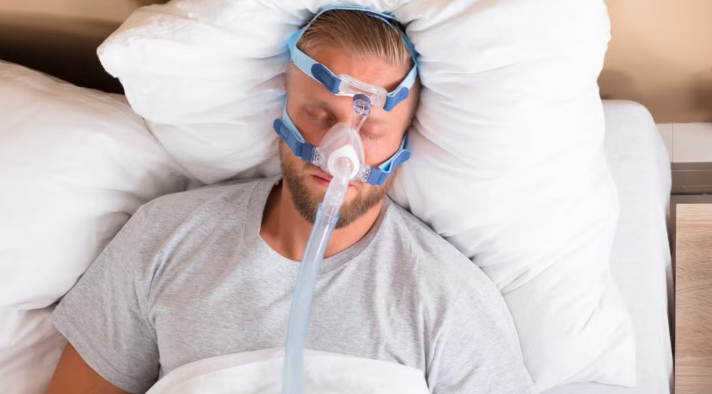Understanding Sleep Apnea in Hong Kong: Causes, Symptoms, and Treatment Options

As urban lifestyles become increasingly stressful and fast-paced, the prevalence of sleep disorders like sleep apnea has surged. In this article, we explore what sleep apnea is, its impact on health, why it is relevant to people in Hong Kong, and the modern treatment options available.
What is Sleep Apnea?
The most common type is obstructive sleep apnea (OSA), where the airway becomes partially or completely blocked, causing breathing to stop temporarily. There is also central sleep apnea, which involves the brain failing to send proper signals to the muscles controlling breathing.
Hong Kong is known for its densely populated urban environment, long working hours, and high-stress lifestyle. These factors contribute significantly to sleep deprivation and poor sleep quality among its population. Research shows that adults in Hong Kong often experience insufficient or disturbed sleep, making the city a hotspot for sleep-related disorders, including sleep apnea hong kong
- High blood pressure
- Heart disease
- Stroke
- Type 2 diabetes
- Daytime fatigue and impaired concentration
- Increased risk of accidents
Causes and Risk Factors for Sleep Apnea in Hong Kong
While some causes are universal, certain lifestyle and demographic factors are particularly relevant to the Hong Kong population.
- Obesity: Excess weight can cause fat deposits around the upper airway, leading to obstruction. With rising obesity rates in Hong Kong, this is a significant risk factor.
- Age and Gender: Sleep apnea is more common in middle-aged and older adults and tends to affect men more than women.
- Anatomical Features: Certain physical traits such as a thick neck, large tonsils, or a small jawbone can increase risk.
Recognizing the Symptoms of Sleep Apnea
Identifying sleep apnea can be challenging because many symptoms occur during sleep when the person is unaware. However, several signs should prompt medical evaluation:
- Loud, persistent snoring
- Gasping or choking during sleep
- Excessive daytime sleepiness or fatigue
- Morning headaches
- Difficulty concentrating or memory problems
- Mood changes such as irritability or depression
- Restless sleep or frequent awakenings
In Hong Kong, where work pressure is high, daytime fatigue is often mistakenly attributed to busy schedules, delaying diagnosis.
If you suspect you or a loved one may have sleep apnea, consulting a healthcare professional is essential. In Hong Kong, sleep clinics and hospitals offer specialized tests to diagnose sleep apnea.
- Polysomnography (Sleep Study): This overnight test monitors breathing, oxygen levels, heart rate, and brain activity during sleep. It is the gold standard for diagnosis.
- Home Sleep Apnea Testing: For convenience, some clinics offer portable devices that can be used at home to record breathing patterns.
Treatment Options Available in Hong Kong for Sleep Apnea
Effective treatment depends on the severity of sleep apnea and individual patient factors. In Hong Kong, a range of options is available from lifestyle changes to advanced medical interventions.
- Lifestyle Modifications
- Weight Loss: For overweight patients, reducing body weight can significantly improve symptoms.
- Avoiding Alcohol and Smoking: Reducing these habits helps decrease airway inflammation.
- Regular Sleep Schedule: Maintaining consistent sleep habits supports better rest.
- Continuous Positive Airway Pressure (CPAP) Therapy
CPAP is the most common and effective treatment for moderate to severe sleep apnea.
Hong Kong’s medical centers widely offer CPAP therapy, and many patients report significant improvements in sleep quality and daytime alertness after starting treatment.
- Oral Appliances
For mild to moderate cases, dental devices designed to keep the airway open by repositioning the jaw and tongue are an alternative. These devices are custom-fitted by dental specialists familiar with sleep apnea management.
- Surgical Interventions
Procedures such as uvulopalatopharyngoplasty (UPPP) or tonsillectomy are available in Hong Kong’s hospitals.
See also: What Is Geo Grid: A Guide to Soil Stabilization Technology
Preventive Tips for Sleep Apnea
Prevention focuses on reducing risk factors and promoting healthy sleep hygiene:
- Avoid excessive alcohol, especially before bedtime
- Quit smoking to reduce airway inflammation
- Establish a consistent sleep schedule, even on weekends
- Create a relaxing bedtime routine to reduce stress
Conclusion
Sleep apnea hong kong is a growing health concern tied closely to the city’s lifestyle and demographic factors. Recognizing the symptoms and seeking professional diagnosis can prevent serious health complications. Fortunately, with advances in medical treatment and increasing awareness, individuals suffering from sleep apnea can lead healthier, more restful lives.
If you or someone you know experiences symptoms of sleep apnea, consult a healthcare provider or sleep specialist in Hong Kong promptly.




